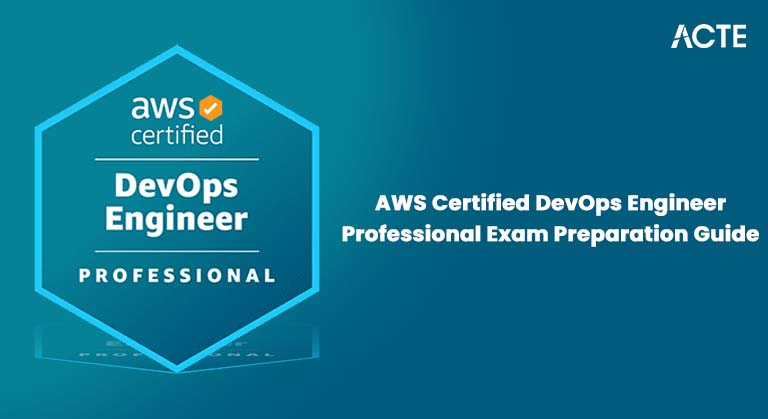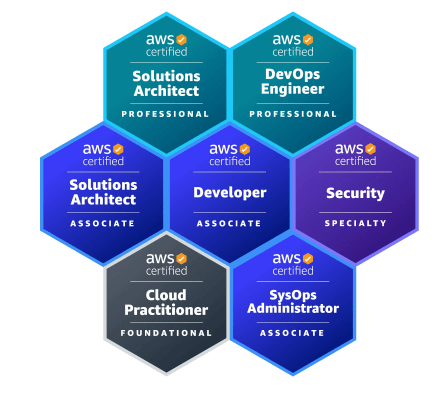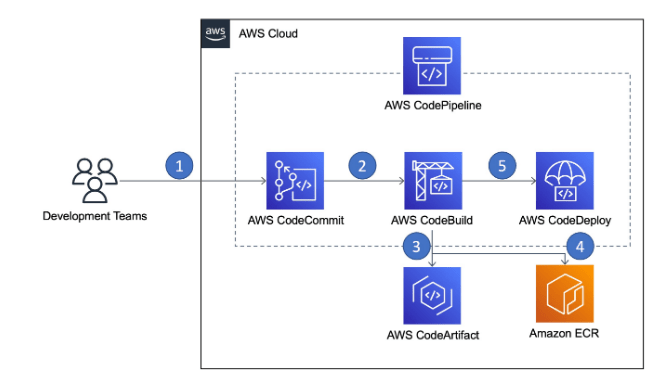
- Overview of the AWS DevOps Engineer Certification
- Who Should Take This Certification?
- Exam Format and Requirements
- Key Domains Covered in the Exam
- AWS DevOps Tools and Best Practices
- CI/CD Pipelines in AWS
- Monitoring and Logging in AWS
- Best Study Resources and Training Courses
- Exam Tips and Strategies
- Career Benefits of AWS DevOps Certification
Overview of the AWS DevOps Engineer Certification
The AWS Certified DevOps Engineer Professional certification is designed for individuals who have experience deploying, managing, and operating scalable, highly available, and fault-tolerant systems on Amazon Web Services (AWS). The certification validates a candidate’s ability to implement and manage continuous delivery systems and methodologies on AWS, automate processes, and manage infrastructure as code. It is a highly sought-after certification for professionals who work in DevOps roles and want to demonstrate their expertise in using AWS services to streamline development, automation, and operations. AWS DevOps Engineer certification aligns with the growing demand for DevOps practices and continuous integration/delivery (CI/CD) in cloud environments. The certification focuses on a candidate’s ability to manage the end-to-end development lifecycle, from planning and coding to testing and deployment.
Who Should Take This Certification?
The AWS Certified DevOps Engineer Professional certification is intended for individuals with significant DevOps role experience. Ideal candidates include:
- DevOps Engineers: Professionals who automate the software development lifecycle (SDLC) and manage the infrastructure needed for continuous delivery.
- System Administrators: IT professionals responsible for managing the infrastructure and services that support development teams and automated deployments.
- Software Engineers: Developers interested in bridging the gap between development and operations and automating deployments and infrastructure management.
- Cloud Architects: Professionals who design and implement cloud infrastructures, ensuring they align with DevOps principles and facilitate automation.
- Automation Engineers: Individuals responsible for creating scripts, automating tasks, and developing deployment pipelines for CI/CD.
- Design, implement, and manage CI/CD pipelines on AWS.
- Automate testing, building, and deployment processes using AWS services such as AWS
- CodePipeline, CodeBuild, and CodeDeploy.
- Implement automated infrastructure provisioning using AWS CloudFormation or Terraform.
- Manage infrastructure using AWS tools like AWS CloudFormation, Elastic Beanstalk, and OpsWorks.
- Implement configuration management systems such as Ansible, Puppet, or Chef for automating infrastructure.
- Set up monitoring and alerting using AWS CloudWatch, CloudTrail, and other monitoring tools.
- Troubleshoot applications and systems using logs and metrics from AWS services.
- Implement centralized logging and monitoring solutions.
- Implement security best practices in AWS environments (IAM, encryption, access controls).
- Automate compliance and governance controls using AWS services such as AWS Config and AWS CloudTrail.
- Implement auditing and monitoring to ensure compliance with security standards.
- Implement application and system availability strategies, including Auto Scaling, Elastic Load Balancing, and multi-region deployments.
- Design and implement disaster recovery solutions using AWS services like AWS Backup and Route 53.
- Automate backups and restore procedures in cloud environments.
- Leverage AWS services such as AWS Lambda, EC2 Spot Instances, and S3 storage tiers to implement cost-effective solutions.
- Design performance-optimized solutions that balance cost and efficiency.
- Monitor and manage AWS resources for cost optimization and performance improvement.
- AWS CodePipeline: A fully managed CI/CD service for automating application development’s build, test, and deploy phases.
- AWS CodeDeploy: Automates the deployment of applications to EC2 instances, Lambda, or on-premises servers.
- AWS CloudFormation: Enables you to model and provision AWS infrastructure as code, automating provisioning and management.
- AWS CloudWatch: Provides monitoring and observability of AWS resources and applications through metrics, logs, and alarms.
- AWS CodeBuild: A fully managed build service to compile source code, run tests, and produce deployable artifacts.
- AWS Elastic Beanstalk: A platform-as-a-service (PaaS) offering for quickly deploying applications in the cloud without managing the underlying infrastructure.
- AWS Systems Manager: A suite of tools for managing infrastructure, software configurations, patching, and automation.
- AWS Lambda: Allows you to run code in response to events without managing servers, enabling serverless computing for DevOps automation.
- Infrastructure as Code: Automate infrastructure deployment using tools like AWS CloudFormation and Terraform, ensuring that infrastructure is version-controlled and replicable.
- Continuous Integration (CI) and Continuous Delivery (CD): Establish a continuous integration pipeline that automatically tests and deploys code changes. AWS services such as CodePipeline, CodeDeploy, and CodeBuild can be used to automate deployment and monitoring.
- Monitoring and Logging: Implement a robust monitoring system using AWS CloudWatch and CloudTrail to track performance, logs, and errors in real-time.
- Security: Adopt best practices such as using IAM roles and policies, automating security compliance checks, and encrypting data at rest and in transit.
- Automation: Automate tasks, such as backup procedures, deployment processes, and infrastructure scaling.
- AWS Training: AWS offers official training courses such as DevOps Engineering and Advanced Architecting on AWS.
- A Cloud Guru and Linux Academy: Offers specialized courses and practice exams tailored to the DevOps Engineer certification.
- AWS Whitepapers: Reviewing AWS’s whitepapers on security, best practices, and architecture is essential for exam preparation.
- Books: “AWS Certified DevOps Engineer Professional Study Guide” and “AWS Certified DevOps Engineer Professional Exam Guide” are great resources for in-depth learning.
- Understand Key Services: Focus on services like CodePipeline, CloudFormation, and CloudWatch as they are frequently tested.
- Use Practice Exams: Take mock exams to familiarize yourself with the question format and identify areas for improvement.
- Master Automation: Ensure you can automate the entire software delivery lifecycle using AWS services.
- Focus on Security: Review AWS security best practices and tools for maintaining secure environments.

Exam Format and Requirements
The AWS Certified DevOps Engineer Professional exam evaluates your ability to implement DevOps practices using AWS tools. This exam is more advanced than the associate-level exams and requires a deeper understanding and hands-on experience with AWS services and DevOps methodologies. The exam consists of 75 multiple-choice and multiple-response questions, with a duration of 180 minutes. The cost is USD 300, and it is available in English, Japanese, Korean, and Simplified Chinese. Although there are no formal prerequisites, AWS recommends that candidates have at least two years of hands-on experience managing AWS environments and hold either the AWS Certified Developer Associate or AWS Certified SysOps Administrator Associate certification. The exam content focuses on areas such as continuous integration and continuous delivery (CI/CD), automation of infrastructure and application deployments, monitoring, logging, and troubleshooting within AWS environments, and ensuring security, compliance, and cost optimization in DevOps practices.
Key Domains Covered in the Exam
SDLC Automation (22%):
Configuration Management and Infrastructure as Code (19%):
Monitoring and Logging (15%):
Security, Compliance, and Governance (15%):
High Availability, Backup, and Recovery (13%):
Cost and Performance Optimization (16%):
AWS DevOps Tools and Best Practices
AWS Tools:
DevOps Best Practices:
CI/CD Pipelines in AWS
Continuous Integration (CI) and Continuous Delivery (CD) are essential principles in DevOps, aimed at reducing manual tasks, automating repetitive processes, and ensuring rapid, reliable software delivery. By integrating CI/CD into the development lifecycle, teams can deploy new features and fixes quickly while maintaining high-quality standards. AWS offers a robust set of services to streamline the implementation of CI/CD pipelines. AWS CodeCommit is a fully managed Git repository service that enables source control for your projects. AWS CodePipeline automates the entire workflow, orchestrating the build, test, and deployment processes, allowing for continuous updates and delivery. AWS CodeBuild complements this by compiling code, running tests, and producing build artifacts, which are ready for deployment.

AWS CodeDeploy simplifies the deployment process, allowing applications to be deployed across multiple environments, such as EC2 instances, Lambda functions, and on-premises systems. These services work together to create a seamless, automated pipeline that improves efficiency and accelerates software delivery, while ensuring consistency and reliability throughout the DevOps lifecycle.
Monitoring and Logging in AWS
Effective monitoring and logging are crucial for ensuring high availability and performance, particularly in DevOps environments. AWS offers a range of tools to help monitor infrastructure and applications. AWS CloudWatch collects metrics and logs from AWS resources, such as EC2 instances and Lambda functions, and allows you to set up CloudWatch Alarms to notify you of any performance issues or failures. AWS CloudTrail records and logs API requests, providing valuable data for auditing and troubleshooting. Additionally, Amazon CloudWatch Logs enables you to collect and store logs from EC2 instances, Lambda functions, and other AWS resources for future analysis. These tools together provide comprehensive monitoring and logging capabilities to support efficient operations and troubleshooting.
Best Study Resources and Training Courses
Several resources are available to help you prepare for the AWS Certified DevOps Engineer Professional exam:
Exam Tips and Strategies
Career Benefits of AWS DevOps Certification
Achieving the AWS Certified DevOps Engineer Professional certification boosts your professional credibility and enhances your earning potential. As professionals with DevOps expertise are in high demand, this certification establishes you as an expert capable of managing complex cloud environments and automating software delivery pipelines. Career benefits include expanded job opportunities in DevOps, cloud engineering, and automation, along with increased earning potential, as AWS-certified professionals typically earn higher salaries than their non-certified counterparts. Additionally, this certification opens doors for career advancement into leadership roles such as DevOps Manager or Cloud Architect. In conclusion, the AWS Certified DevOps Engineer Professional certification is crucial for individuals seeking to showcase their expertise in DevOps practices on AWS. It validates your skills in automation, CI/CD, security, and scalability, positioning you as a highly valuable asset to organizations leveraging AWS for DevOps solutions.





